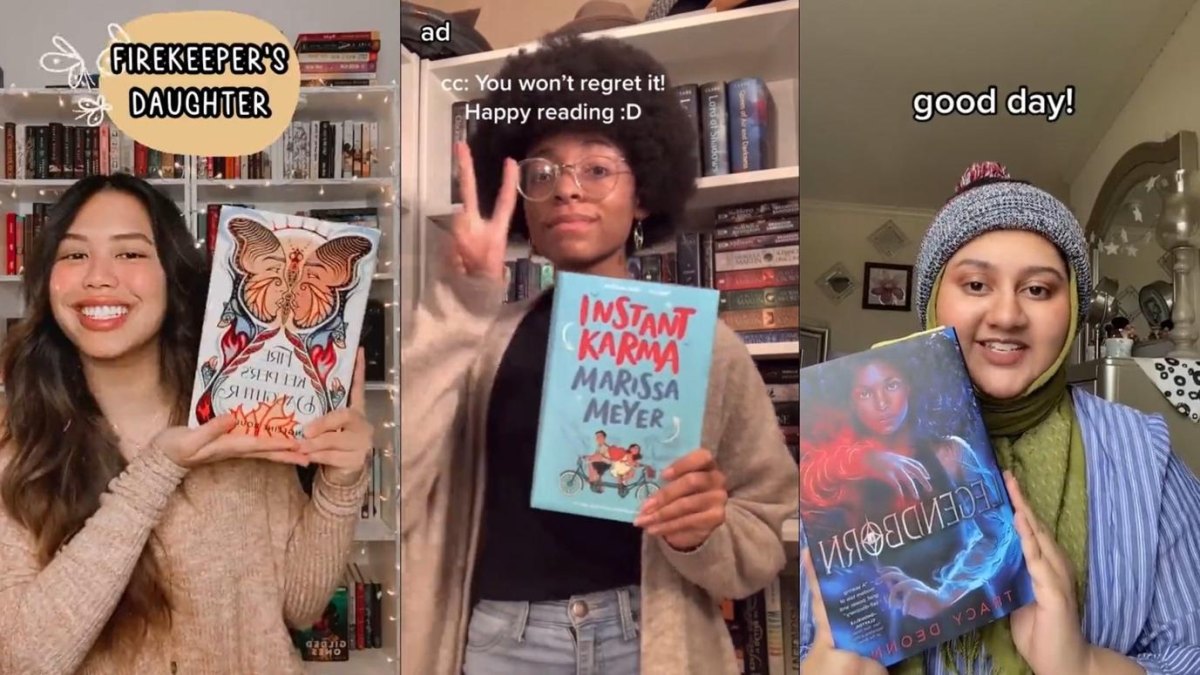In December 2020, I came to a sudden realisation.
I hadn’t read a single book that year. For a semiotician and cultural researcher, this was a worrying situation. My capacity for long-form investigation into a new world had been shaken by the scary state of the current one.
Concerned about me, Joma West, my childhood best friend and author of dystopian novel Face, decided to help. They curated a bespoke list of short, queer, fantasy/sci fi books that could ease me back into my former favourite pastime. I trusted each recommendation because I knew Joma was like me — they had the same tastes, a similar eclectic background, similar penchant for magical stories inspired by foreign cultural legends.
I read every book on the list, and as I did, my TikTok algorithm took me to BookTok — the community dedicated to the discussion of books — old, new, weird and wonderful. I now spend all my spare time reading, looking up new books to add to my TBR (to be read list), or discovering new recommendations from BookTokers that I follow and trust. I’ve never read so much in my life.
I’m not alone in this experience. BookTok is full of people detailing their switch from occasional reader to avid bookworm and book collector. Even some of the most popular reviewers claim they rarely read before they joined the platform. TikTok’s medium lends itself perfectly to book lovers who want to discover new things without too many spoilers. The video format is snappy, often a person sat in front of their book collection, showing off a new book, a book haul, or a collection of book recommendations based around a theme.
There are other book communities on other platforms, but they function differently. BookTube is typically 20-30 minute reviews of single books or authors. Bookstagram focuses on the aesthetics of book covers and shelves as much as the content. BookTok is cosy, friendly, and quick, just like the list Joma gave me.
Like many internet communities, I follow people who feel like they could be friends, people like me. For me, that’s queer people of colour who like fantasy and sci-fi focusing on those kinds of characters. There are so many more books about people like me, for people like me, recommended by people like me, than I ever had access to when I was a teenager. Young me would never have dreamed that ‘The Sapphic Trifecta’ (The Unbroken by C. L. Clark, She Who Became the Sun by Shelley Parker-Chan and The Jasmine Throne by Tasha Suri) could exist, let alone top bestseller lists. Older me never would have discovered them if it wasn’t for BookTok.
BookTok is also changing publishing itself
There has been a huge uptake in book sales in the last few years, despite occasional issues with supply. Go into any Waterstones in the UK and you’re likely to find certain bookshelves, especially fiction, arranged to promote BookTok books, often with a sign saying #BookTok so you can easily find it.
At the first BookTok day festival at Waterstones Piccadilly in August, the publishers at the stands could barely keep up with demand for book-themed merchandise and ARCs (advanced reader copies of new unpublished books).
While it’s great that BookTok is invigorating publishing and creating such a dedicated community, there are some downsides. Like any viral piece of media — certain books dominate the space, taking up attention that could be given to lesser known but equally amazing authors. You’re in danger of seeing the same books recommended repeatedly if you don’t purposefully swipe away to encourage the algorithm to show you something new.
Overall, however, the power of BookTok to inspire, connect and encourage reading as a worthwhile, satisfying and exciting pastime cannot be ignored. For me, it has helped me find characters just like me, characters I never truly realised I needed. It has taught me about different cultures by recommending mythological retellings and new worlds by diverse, foreign authors.
For a cultural researcher, BookTok is helpful because it shows me what people, often diverse, younger people, are reading, as opposed to just what they are watching (which all too often becomes the focus of entertainment-based research). For a queer POC, it’s a way to find community, representation, and calm. It made me fall in love with books again.
Becks Collins (he/they) is a Semiotician and Cultural Insight Specialist based in London. Follow them on LinkedIn.

